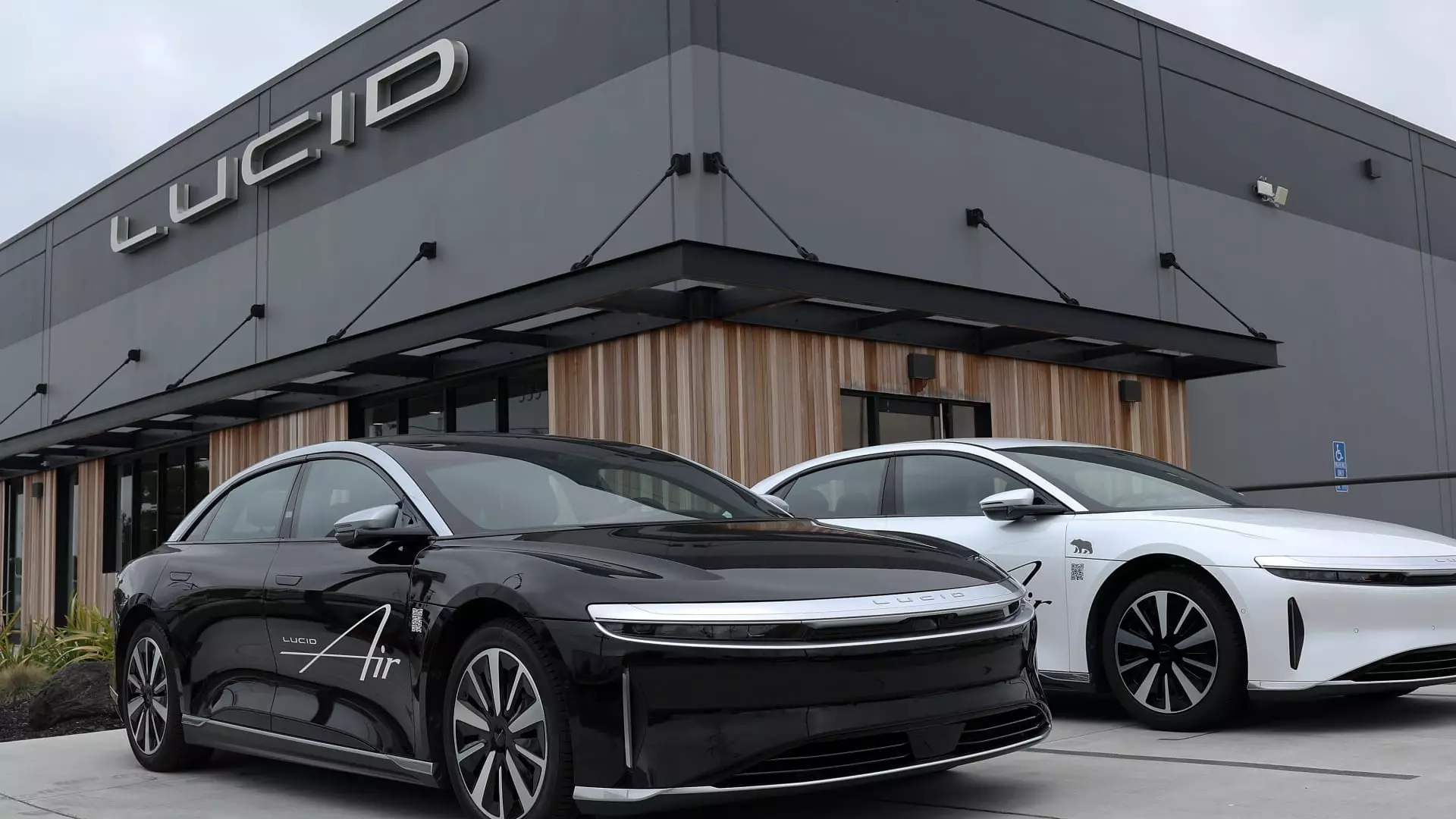The electric vehicle (EV) industry has been rapidly evolving, and within this landscape, Lucid Group has made significant strides. However, recent leadership changes have brought both challenges and opportunities for the company. On Tuesday, Lucid Group announced that CEO Peter Rawlinson has stepped down, handing over the reins to Marc Winterhoff, the company’s chief operating officer. As Lucid prepares to more than double its production to 20,000 vehicles this year, the timing of this transition raises numerous questions and potential concerns.
Peter Rawlinson, the mastermind behind Lucid’s impressive engineering designs and strategies, has played a pivotal role in the company’s journey over the last twelve years. His leadership marked a period of innovation and unprecedented growth for Lucid, culminating in the public offering through a SPAC in July 2021. Despite being one of the company’s major shareholders, Rawlinson’s decision to step down appears to be a proactive measure rather than a response to internal crises or failures. In a statement, Rawlinson expressed pride in the achievements of his team but acknowledged that it was time for new leadership to guide the company into its next phase of production growth.
However, it is also worth analyzing the implications of his departure. While Rawlinson is slated to remain with the company as a strategic technical advisor, his absence in the executive sphere raises concerns about continuity in leadership and vision. The electric vehicle market is notorious for rapid shifts in consumer preferences and regulatory landscapes, and a leadership transition at such a critical juncture could pose risks for Lucid.
Taking over as interim CEO, Marc Winterhoff has a significant task ahead of him. He joined Lucid in December 2023 from consultancy firm Roland Berger, and now faces the dual challenge of ramping up production and navigating the complex terrain of the electric vehicle market. The company has set an ambitious target to build 20,000 vehicles in the current year, a significant increase from the 9,029 vehicles produced in 2024. Winterhoff’s prior experience in strategy consulting may help him tackle the operational hurdles faced by the automaker.
In a recent interview, Winterhoff noted that Rawlinson’s decision to resign came after years of “daily grind.” This reflection highlights the intense pressure and relentless work culture within a challenging industry environment. It also raises questions about the sustainability of such a leadership model, especially in sectors requiring rapid innovation and adaptability.
The transition in leadership coincides with Lucid’s reporting of fourth-quarter financial results, which exhibited a net loss of $636.9 million, a slight improvement compared to the previous year’s loss. Analysts had anticipated an even larger deficit, and while the quarterly revenue of $234.5 million surpassed projections, the financial outlook still points to a company that is searching for its footing. The announcement of expanded production targets amid ongoing monetary losses raises eyebrows regarding the viability of such ambitious plans.
Investor sentiment has also been turbulent. Despite a modest spike in shares following the announcement of the leadership change and production goals, Lucid’s stock has faced a tumultuous year, marked by a decline of approximately 13% in the current year alone. This reflects broader anxieties within the EV market, particularly concerning the adoption rates of all-electric vehicles and the future of federal support under changing political administrations.
Lucid Group stands at a crossroads marked by both potential and peril. The leadership transition from Rawlinson to Winterhoff signifies a revolutionary shift that could either propel the company to new heights or hinder its progress amid intensifying competition in the electric vehicle market. As they navigate these challenges, the focus will need to be on coherent strategic planning that builds on the company’s heritage while embracing innovative solutions for the future. As consumers and investors alike watch closely, only time will reveal the implications of this leadership shakeup on Lucid’s trajectory in the electrifying landscape of modern automotive manufacturing.

